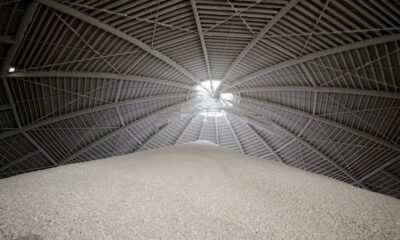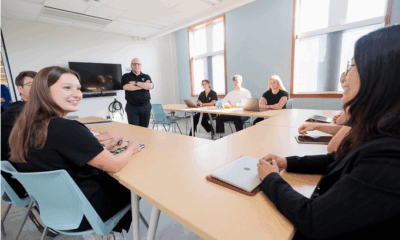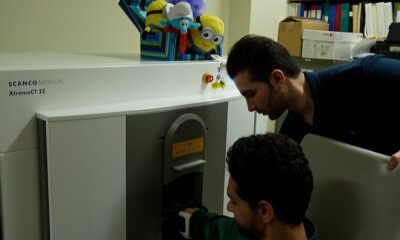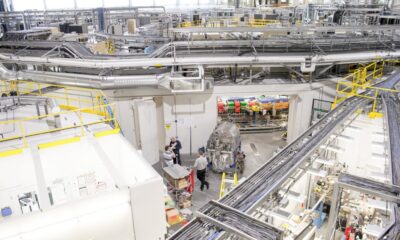Science
USask Secures Over $460,000 for Innovative Cell Sorting Technology
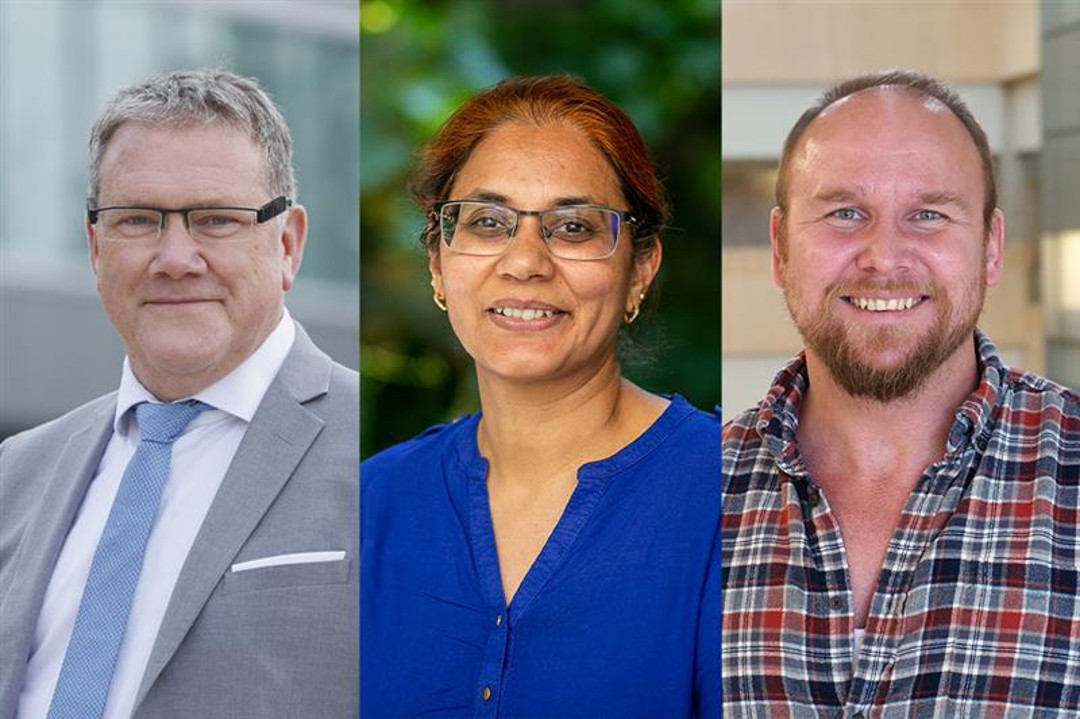
A collaborative initiative involving the Vaccine and Infectious Disease Organization (VIDO), the University of Saskatchewan’s (USask) College of Medicine, and the Western College of Veterinary Medicine (WCVM) has secured over $460,000 from the Canada Foundation for Innovation’s (CFI) John R. Evans Leadership Fund (JELF). This funding is earmarked for cutting-edge technology that will enable the sorting of biological samples by cell type.
Dr. Volker Gerdts, director of VIDO and a professor at WCVM, emphasized the significance of this advancement, stating, “Research is accelerating at USask. We’re doing state-of-the-art work that is nationally and internationally competitive.” The newly acquired cell sorting machine employs fluorescence-based technology to differentiate various cell types as samples pass through lasers. This process is akin to how a coin sorting machine categorizes coins by size.
Enhanced Research Capabilities
The technology allows researchers to selectively separate immune cells for further analysis, thereby facilitating a deeper understanding of immune responses. Dr. Gerdts explained that the machine enhances the capability to sort individual cells, which can then be utilized in subsequent research projects.
Dr. Gurpreet Aulakh from the WCVM noted that this innovation significantly boosts the efficiency of research across USask’s colleges. “Cell sorting using more standard microscopy takes a tremendous amount of time and effort,” Aulakh said. The new machine will expedite projects while maximizing the use of limited sample volumes. “This new equipment is a workhorse,” she added. “We will really be maximizing the use of tiny amounts of samples we are able to collect.”
The cell sorting technology will be housed at VIDO, but it will be accessible to researchers from other departments within the university. Dr. Peter Pioli, who specializes in studying autoimmunity and antibody-secreting cells, expressed that the machine will simplify the study of rare cell populations, such as stem cells, which are often difficult to analyze in detail without extraction from their natural environment.
Collaboration and Future Prospects
The joint application for this funding underscores the collaborative efforts among VIDO, the WCVM, and the College of Medicine. Dr. Pioli highlighted that cooperation between these units not only strengthens their research capabilities but also enhances USask’s standing in biological and medical research for both human and animal health.
The CFI-JELF program is highly competitive, and Dr. Pioli remarked that securing such funding is a testament to the promising research landscape at USask. “What this funding tells me is that people see the potential of what can be done here,” he stated. “You don’t back a horse that you think is going to lose. CFI giving this group more than $400,000 to invest in infrastructure means they see the potential of what not only the three units on the application can do, but what the researchers on campus overall can achieve.”
Overall, this investment in advanced cell sorting technology is expected to pave the way for innovative research initiatives at USask, reinforcing its commitment to leading-edge scientific exploration in the field of health and medicine.
-

 Politics4 weeks ago
Politics4 weeks agoSecwepemc First Nation Seeks Aboriginal Title Over Kamloops Area
-

 World5 months ago
World5 months agoScientists Unearth Ancient Antarctic Ice to Unlock Climate Secrets
-

 Entertainment5 months ago
Entertainment5 months agoTrump and McCormick to Announce $70 Billion Energy Investments
-

 Science5 months ago
Science5 months agoFour Astronauts Return to Earth After International Space Station Mission
-

 Lifestyle5 months ago
Lifestyle5 months agoTransLink Launches Food Truck Program to Boost Revenue in Vancouver
-

 Technology3 months ago
Technology3 months agoApple Notes Enhances Functionality with Markdown Support in macOS 26
-

 Lifestyle3 months ago
Lifestyle3 months agoManitoba’s Burger Champion Shines Again Amid Dining Innovations
-

 Top Stories2 months ago
Top Stories2 months agoUrgent Update: Fatal Crash on Highway 99 Claims Life of Pitt Meadows Man
-

 Politics4 months ago
Politics4 months agoUkrainian Tennis Star Elina Svitolina Faces Death Threats Online
-

 Sports5 months ago
Sports5 months agoSearch Underway for Missing Hunter Amid Hokkaido Bear Emergency
-

 Politics5 months ago
Politics5 months agoCarney Engages First Nations Leaders at Development Law Summit
-

 Technology5 months ago
Technology5 months agoFrosthaven Launches Early Access on July 31, 2025

